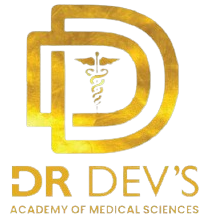Postgraduate Diploma and Fellowship in Gynecological Endocrinology: Elevating Expertise in Women’s Reproductive Health
Introduction: Gynecological Endocrinology is a specialized field within obstetrics and gynecology that focuses on hormonal disorders affecting women’s reproductive health. Postgraduate Diploma and Fellowship programs in Gynecological Endocrinology are designed for healthcare professionals, typically obstetricians and gynecologists, seeking advanced training to diagnose and manage hormonal imbalances impacting the female reproductive system.
Key Components of the Programs:
- Hormonal Disorders in Women:
- In-depth study of hormonal conditions such as polycystic ovary syndrome (PCOS), endometriosis, and thyroid disorders affecting reproductive health.
- Comprehensive understanding of hormonal regulation in the menstrual cycle and fertility.
- Diagnostic Techniques:
- Utilization of advanced diagnostic tools, including hormone assays, imaging studies, and molecular diagnostics, to identify and assess hormonal disorders.
- Interpretation of laboratory results and clinical correlations for accurate diagnosis.
- Management of Menstrual Disorders:
- Developing expertise in the management of irregular menstruation, amenorrhea, and abnormal uterine bleeding.
- Tailoring treatment plans, including hormonal therapies and lifestyle interventions, to address specific patient needs.
- Reproductive Endocrinology:
- Understanding the intricacies of female reproductive endocrinology, including ovarian function, follicular development, and the role of hormones in conception.
- Addressing fertility issues and providing assisted reproductive technologies (ART) guidance.
- Therapeutic Approaches:
- Learning about pharmacological interventions and hormonal therapies to manage gynecological endocrine disorders effectively.
- Integrating lifestyle modifications and complementary approaches into treatment plans.
- Menopause Management:
- Specialized training in the management of perimenopausal and postmenopausal conditions, including hormone replacement therapy (HRT) considerations.
- Addressing the impact of hormonal changes on bone health, cardiovascular health, and overall well-being.
- Research and Evidence-Based Practice:
- Engaging in research projects to contribute to the evolving field of gynecological endocrinology.
- Implementing evidence-based practices in the diagnosis and management of hormonal disorders.
Career Opportunities:
- Graduates can pursue careers as Gynecological Endocrinologists in hospitals, fertility clinics, and private practices.
- Opportunities for academic roles, teaching, and contributing to ongoing research in reproductive endocrinology.
Benefits of Pursuing PG Diploma and Fellowship in Gynecological Endocrinology:
- Specialized expertise in diagnosing and managing hormonal disorders impacting women’s reproductive health.
- Enhanced skills for providing comprehensive care to women at different stages of their reproductive lives.
- Contributing to advancements in the field through research and evidence-based practices.
Conclusion: Postgraduate Diploma and Fellowship programs in Gynecological Endocrinology provide healthcare professionals with advanced training to become experts in diagnosing and managing hormonal disorders affecting women’s reproductive health. With a focus on evidence-based practices and comprehensive patient care, graduates play a crucial role in addressing the unique hormonal challenges faced by women throughout their reproductive journey. As the field continues to evolve, these programs contribute to the advancement of knowledge and the improvement of women’s health outcomes.

Tlover Tonet
17 September 2024I really enjoy studying on this web site, it contains good articles. “We find comfort among those who agree with us–growth among those who don’t.” by Frank A. Clark.